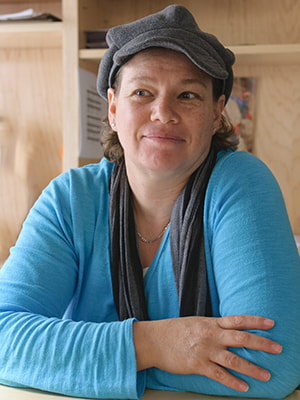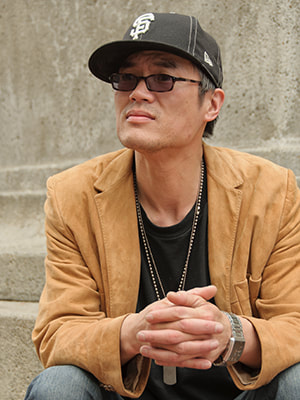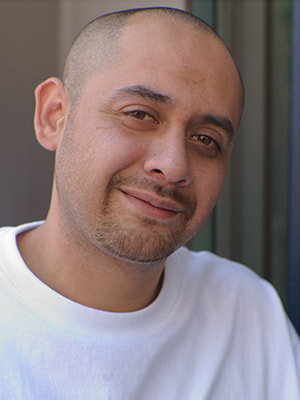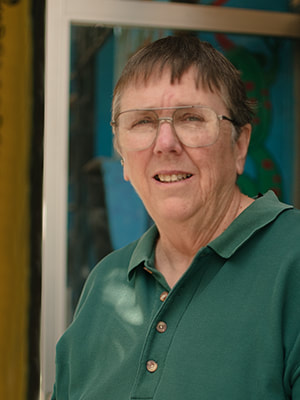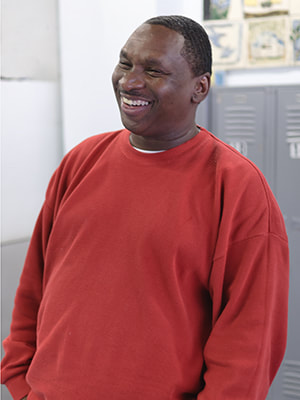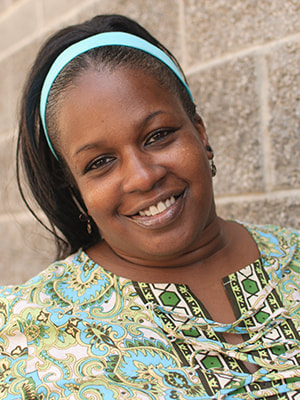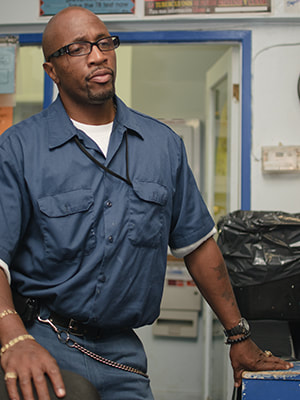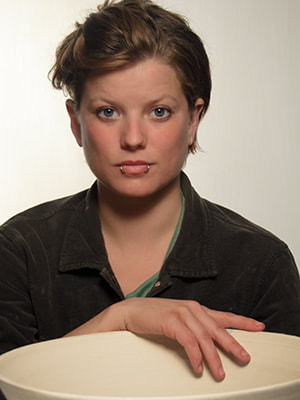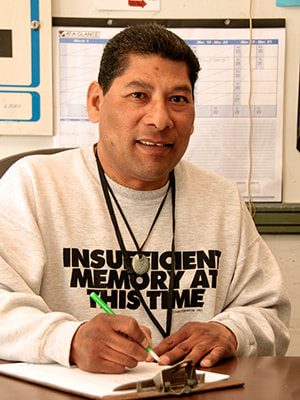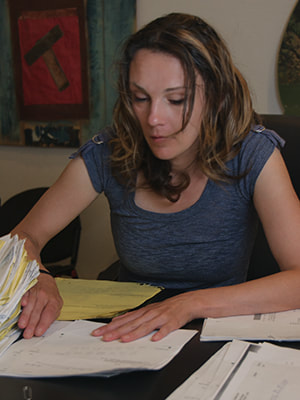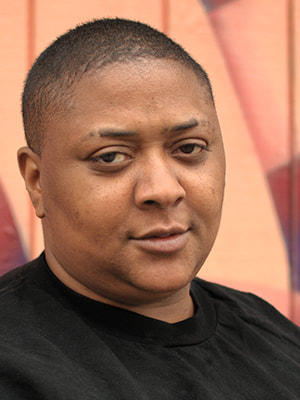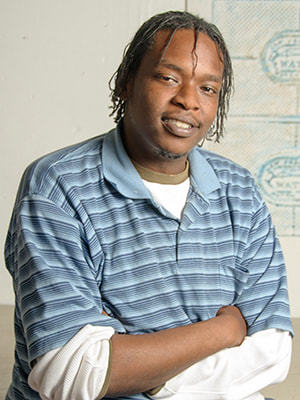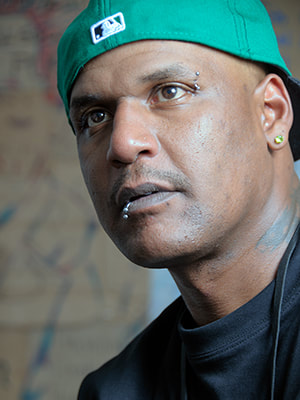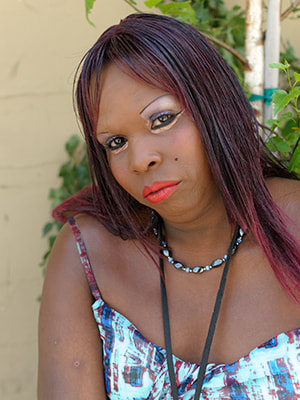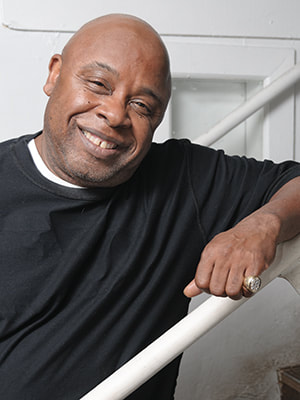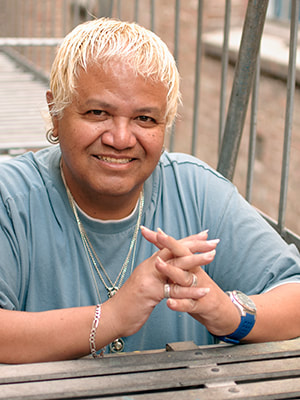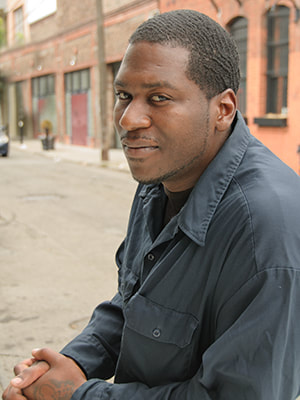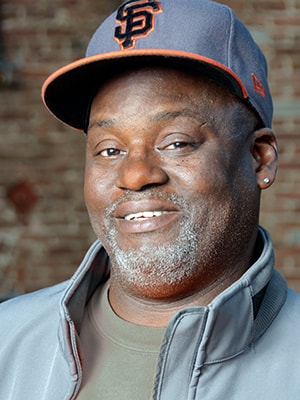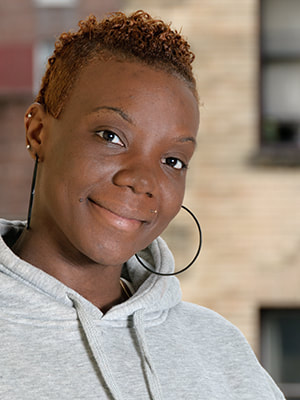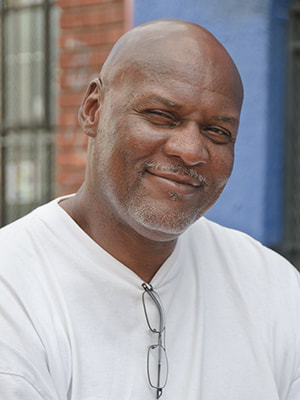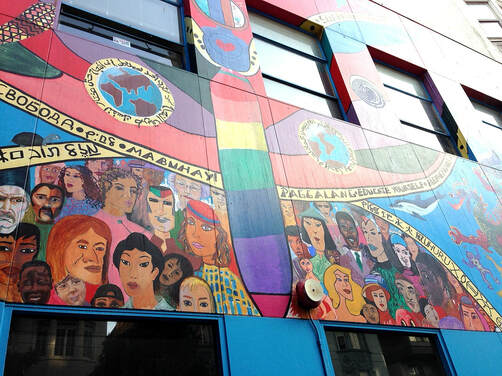|
David McKinley
Program Manager Meet David
When I was sixteen, I was homeless, for about a year. I got into an altercation, and I was incarcerated. And then, when I came out, I had nowhere to go. I was sleeping at bus stops, curled up in a park, that kind of thing. I was on my own, by myself. After you experience it and being able to pull out of it, you have a deeper appreciation of what people go through. People are mad, people are angry, people are grumpy. It’s not because they’re mad, spiteful, angry, grumpy people. It’s because they’re in survival mode. They feel rejected. They feel alone. So I started volunteering, trying to balance out the karma in my own way. |
Roxana Salazar
Case Manager Meet Roxana
The day I turned 18, I packed a bag with all my stuff and went to live in an empty warehouse, with a whole bunch of other young people who, for one reason or another, hand to be on their own. I had some hardships and experiences that I never expected. They helped me to have more empathy for other people with similar struggles. When I was bouncing from place to place, I discovered the Hospitality House Art Program. I started drawing and working with the clay. It was quiet and I could keep to myself. It felt safe and very welcoming to me. A great thing was that you could just drop in any time of the day and leave your troubles outside the door. |
Clifford Lee
Peer Advocate Meet Clifford
Being homeless with a family is totally different. It’s hard. We slept in the park. We slept on a mattress in China Town. I was working at Mill Valley Tennis Club. Right after 9/11, my hours started going, and soon enough there was nothing. Everything went downhill from there. I did my G.A. Workfare at Hospitality House. My wife kept telling me: get off G.A. and make more money. Yeah, I could have done that, but it was something I liked. Something kept me there. Now I’m Employment Case Manager. |
Joel Farias
Peer Advocate Meet Joel
People in my family had substance abuse and also alcohol problems, so I was raised knowing how to deal with it. And as I was growing up my mom always had a heart dealing with the homeless population, giving them food or blankets. And then, when I came out of incarceration in 2006, I was in desperate need of a job, and my case manager helped me get a job at a drop-in center. I fell in love with this career of harm reduction, and it’s part of me – giving back to the community. |
|
Jan Couvillon
Peer Advocate Meet Jan
I was a single parent, divorced, with two children and making minimum wage. So I had to figure out, when I had one tomato and a cup of rice, how to make meals for the kids. In California, I struggled to find employment. When I was really making some progress, I was in a car accident, and couldn’t work because of a head injury. So I wound up on the verge of homelessness. Then I became addicted to prescription medication for seizures and had to come off of those medications when the seizures subsided. So I can relate to the people here. |
Raymond Ifield
Case Manager Meet Raymond
When I was in my addiction, I would stay gone from home for weeks at a time. I always took care of my family. But my son’s mother got tired of my back and forth and... I moved. I was homeless for about ten years. One morning I woke up and just said that I was going to quit. With the participants here, I understand a bit what they’re going through, what they’re feeling at times. I’ve been in that position, my highs, my lows, being sad not to have family around, being so far away from home. I have a 21 year old who’s about to graduate from University. It makes me proud. I’m just glad that I was able to get myself out of the situation to be there for him. |
Nina Clark
Case Manager Meet Nina
For fifteen years, I’d been working helping people, and I had an off and on drug addiction. Four years ago, I said: “I don’t want to do this anymore.” So I went cold turkey. It’s the same repeated cycle, and you have a moment of clarity: I can’t keep doing this to my friends and family, or to myself. I treat the clients like I want to be treated, by being myself, by being honest with them. |
Robert Johnson
Maintenance Professional Meet Robert
At one time, I was homeless with nowhere to go. Other homeless people told me about Hospitality House. I was surprised by the nice “come as you are” attitude. I would use the restrooms, didn’t ask too many questions. I was a loner, but I knew I’d always be welcome. It’s surprising every time I come to work here where I used to be a participant. From all my years of being locked up in prison, I have brought a knowledge of people. I used to be an addict. I thought there was no way out, but there is. Hospitality House showed me how. It’s a different way of life – art galleries and anniversary galas – I never thought I’d be a part of it. |
|
Mini Sage
Art Studio Instructor Meet Mini
I grew up in rural communities that were plagued with a lot of the same issues as in the Tenderloin -- a lot of poverty, a lot of people who were and are forgotten by the greater society. I just started feeling like I have to have more content in my life. I don’t want to be one of those people that crosses the street. So I started applying for any job in the arts that worked with community. Our participants have been put through this system that’s told them art is not important; it’s not enough. And then here’s this place, CAP, that says: art is enough. It’s enough to want to make art and to accept that part of you that is an artist. |
Roberto Salazar
Peer Advocate Meet Roberto
What brought me to this job is a personal experience of being homeless coming to a new country. I had two sisters who were in the guerilla war in Nicaragua, and they got killed when they were seventeen and eighteen. Other members of my family were killed. I left in 1976 in order to survive. I was homeless, couldn’t speak English, didn’t know anyone. I just want to give back to the community the help I had. |
Sanda Urban
Program Associate Meet Sanda
When I first came from Serbia, like most immigrants from societies that have never had homelessness, I found it frightening. So I went and took a class at San Francisco City College on Homelessness. Then, I went to Cal State San Francisco for a B.A. and an M.A. I’m a little bit of an oddity. When I came out of grad school, I found that my field was basically about writing grants, and that’s not what I wanted to do. So I became a peer advocate here, but while I’m book smart, I’m not street smart at all. And that’s what has made this job such a wonderful learning experience. Most of my co-workers are extremely street smart, and I’ve found myself humbled again and again and again by learning new things from them every day. The experience has been amazing. A person would come to you when they were down on themselves, and you would compile a resume for them. And they return and tell you they’ve found a job. This is just such a joy, such a high. |
Gordon Wong
Case Manager Meet Gordon
Coming from my family, it’s been really tough. There was domestic violence. My dad still has a really big gambling problem, and he comes to me for money. A participant told me that he gambled away his life, his riches, and once they were all gone, his family was all gone. But now he has stopped gambling, he’s working. He’s saying, I want to give money to my kids and my wife. My dad has never done that. So it touched me when the participant said that. Hospitality House hired me as a bi-lingual Cantonese peer advocate. But I want to learn from the lives of every single individual here, no matter what race. |
|
Kenya Hatcher
Program Manager Meet Kenya
When I first came into the agency as a manager, I thought, what do you mean, meeting them where they are? They’re staff. Now I’ve realized the importance of a peer based program. It’s having staff who can lead by showing someone: “Hey, you know what, I’ve been down that road where you are right now, and I was able to get through it.” Staff or participants, as long as they’re striving to buy back into their lives, someone should be there to help them. |
Lorna Madison
Case Manager Meet Lorna
About this job, I didn’t choose it, it chose me. I grew up in the Army Street Projects. From thirteen to maybe eighteen, I used drugs, sold drugs, did a lot of gang-banging -- and came close to death. After my mother died, I walked away and never looked back. At nineteen, I started working in a homeless shelter. Even though I thrive on working with people and felt needed by the community, a few years ago I had to take a break and do something different. So, I learned how to drive an eighteen-wheeler and drove across country. But something was missing. I felt empty. When I came back, [Manager] Kenya Hatcher influenced me to start working here at Hospitality House. |
Elvis Byrd
Program Manager Meet Elvis
My mom had been using substances, and she lost custody of us. About 6 years ago she finally got her act together. My father is actually still in the Tenderloin and visits the drop-in center. So that’s what made me want to be a peer advocate: wishing that both my mom and my dad could have found a place like Hospitality House and found an opportunity to do something better with their lives. And maybe I could have had a slightly less difficult upbringing. As a manager, I interviewed not really thinking I had a chance, but here I am as a manager, something I never thought I’d do with my education, with my upbringing. Peer staffing gives the example that anyone can make a change. Numerous times, I’ve had a participant who is now my staff member, and that is a great feeling. |
Ray ‘b.j.’ Bennett
Peer Advocate Meet Ray
I basically ran away when I was sixteen, and went to jail. Then I got out, then I went back. Then out, back. I made a promise to my son that I would get my life together. I can relate to a lot of the participants at the Shelter. I’ve been homeless, lost my job. At the drop-in center, whether they’re high or drunk, if you talk to them right and in a proper way, they are going to respect you. I’m not going to snap at them because we all have our problems, we all have our things we got to go through. |
|
Erica Kane
Peer Advocate Meet Erica
One day I was driving a Mercedes, living in the suburbs – and the next day I was homeless, sleeping on the streets in Frisco, having sex in an abandoned building. It was a traumatic experience. It took me 14 years to come back, but I’m back, I’m back. Then I would go to prison, get out for two or three weeks, and go back. As hard as it was to survive in prison, nothing could be harder than that, so I figured if I could do this, I could do anything, and I got out of prison June 25th, 2009. I never looked back. I got hired at Hospitality House . Now I’m a Community Organizer. |
Wendall Davis
Peer Advocate Meet Wendall
Once I had a great career. I was in the Air Force refueling airplanes in the sky. I was a functioning addict, but I believe the abuse came after my mother died. Eventually, slowly but surely, the system took everything from me. I was out and back in jail. I lost my place, lost all my belongings. From how I started here as a resident to where I am now, my whole role and my whole demeanor are totally different. I’ve been blessed the last 10 years. And just watch how we’ve grown. The folks that have seen the new shelter go, “Wow, Dude, this is awesome!” It’s good to see the support we get from the community, from the folks that know we’ve helped them out. When I was working at the drop-in center, this guy says, “I’ve been sitting in this room and I’ve been watching you for over a year!” He said, “I said to myself if HE can get a job and hold it, I can too.” That let me know that every day that I come to work here, I’m a model and it makes a difference. |
Tomas Rapisura
Peer Advocate Meet Tomas
The abilities I bring to my job are that I was homeless for five years and out there in the streets doing my substances. Upon getting clean I realized that I had mental health issues. Now all the resources that I accessed, I can show the participants how to access -- and how to talk to providers to get the services. You can’t just demand something if you want to see something good come out of it. Then the person on the receiving end of that demanding has to know how to accept you, and know how to get you in and bring you down into a comfort zone, so as to be able to assess you when you walk in that door. I really enjoy my job today. On this job, I now celebrate what’s made me a strong person. |
Ahmed Hunt
Maintenance Professional Meet Ahmed
This is my first real job. I was actually in and out of jail before I came to Hospitality House. Ever since I’ve been here -- three years now -- I’ve been on a straight road and doing pretty good, definitely changed a lot of things in my life. And that’s why I love the work I do, and that I am here. What I do feel I bring to the table is integrity, spirit. For some reason, the clients love to talk to me. All my colleagues, they love me, so yeah. |
|
Clifton Martin
Peer Advocate Meet Clifton
I’m from this community. These are guys and I have been seeing each other around for years, in and out of jails, on the streets, so it’s not like I’m unfamiliar to them or them to me. So folks see that people who have the same challenges can meet the challenges and put our life in order. After I got my life together, I was walking down the street in the Tenderloin. One of the great things about the Hospitality House Drop-In Center is that people can walk in and use the restroom. I had to go to the bathroom one day, and I said, “Are you guys hiring over here?” I interviewed and was hired. Hospitality House allows people to become employed who may not be deemed employable. Then they give on-the-job training. |
Raija Freeman Hossainy
Program Manager Meet Raija
The biggest challenge in peer staffing is the switchover from being an actual peer to being staff and maintaining that professional relation. My job is helping people to understand that it’s O.K. to be cordial and friendly and still be able to set a firm boundary. We can implement rules and uphold them, but still be personable with people without being rude or having a negative relationship. Peer staffing is about growing. You learn that you can come from whatever circumstances and grow into different roles and different positions. With both participants and staff, my job is to understand that this is where they started and that this is where they want to go, and to ask how I can help them get to where they want to be. |
Rodney Edwards
Peer Advocate Meet Rodney
Three years ago I was homeless, and stayed in the Hospitality House Shelter. Kenya Hatcher was the manager. She was very helpful, and very loving, and gracious and everything else. I knew I’d want to work with her at some point. I came back at the end of last year looking for her, and here I am. Few of my working experiences in life have had a nurturing environment, someplace that is not all about making money. I have made a whole lot more money than I have here, and I was miserable. |


